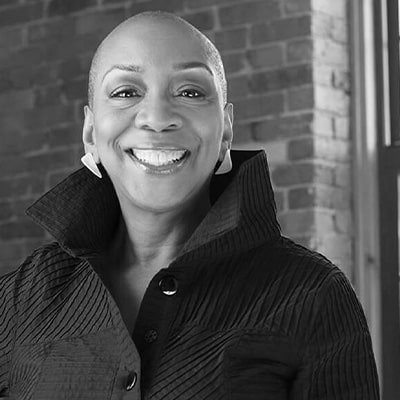There’s so much happening in the world right now that is downright scary. And we have every right to be afraid.
During last month’s March On! Festival, the specter of fear raised its ugly head right at our doorstep. The nation was up in arms surrounding a recent political assassination, and the reactions from different sectors of the country reached alarming levels. Public gatherings and high-profile individuals were being threatened with violent disruption.
We needed to make sure our audiences and speakers were especially protected at our in-person events. So we reviewed security procedures with the management of our venues, doubled down on protection details, made sure everyone was registered, and even searched audience members at the entrance of one event. For a moment, we even contemplated making one live event virtual to avoid the risk of harm.
Tensions were high. Folks was skurred to gather in public. To say or write the wrong thing.
Then I thought about the icons and foot soldiers of the 1960s Civil Rights movement. Back then, there was no option to Zoom or livestream, no security apparatus to scan or search folks. People showed up to the rallies and meetings dogged by threats to their lives and livelihoods from local citizen councils, highway state troopers, and Night Riders patrolling back roads.
So I called one of those movement warriors, Rutha Mae Harris, for her thoughts. Ms. Rutha is 85 years old and still has a voice that can raise the dead. She is one of the original Freedom Singers and has appeared at several past March On! events, alone or with the other then-living original members, Bernice Johnson Reagon and Charles Neblett, along with Ms. Bernice’s daughter, singer Toshi Reagon.
I asked Ms. Rutha if she could recall a time in those early movement days when she was afraid. She replied, “Honestly, I cannot.” The mission and the music sustained them. And they were together.
She described her first year with the Freedom Singers. The quartet, all of whose members were under the age of 21, was formed in 1962 at Albany State College when famed activist/folk singer Pete Seeger witnessed the power of their congregational-styled singing. He suggested them as a touring group for the emerging Student Nonviolent Coordinating Committee (SNCC).

L to r, Charles Neblett, Bernice Johnson Reagon, Cordell Reagon, Rutha Mae Harris
In the earliest days of the movement, meetings were quiet for fear of being cited for rowdiness. Back then, the church was still considered a safe space. It was at Mt. Zion Baptist Church on November 25, 1961, that the Freedom Song made its debut at a mass gathering and quickly became part of the movement’s mobilizing strategy.
The songs were created using the words from speeches and sermons by movement leaders, paired with the melodies of gospel hymns, spirituals, chants, and popular songs everyone already knew.
Each city had its own songs. The songs of Ms. Rutha’s hometown of Albany, Georgia, included “I Woke Up This Morning” and “Oh Pritchett, Oh Kelly,” with the latter’s title referring to Albany’s chief of police and mayor, respectively. The group’s most famous song was “We Shall Not Be Moved.”
Ms. Rutha paused her education at Florida A&M University after her freshman year to travel with the ensemble. The group visited 46 states, sometimes performing four concerts a day, and covered more than 50,000 miles in an old Buick station wagon. The Freedom Singers’ voices raised funds, educated audiences, and fueled the fire of the burgeoning movement. But after nine months, Ms. Rutha grew weary and returned home to keep her promise to her mother to finish college.

During the height of the movement, Ms. Rutha was arrested three times, spending 14 days in jail. In her lifetime, she has performed at the 1963 March on Washington for Jobs and Freedom; hundreds of jails, college campuses, and churches; the Obama White House; and the opening of the Smithsonian National Museum of African American History and Culture — the “Blacksonian.”
All her life, Ms. Rutha has made her living by one rule — to “throw her head back and sang.”
What I got from her is to a) have a point of view and 2) to keep showing up in its support.
Gil Scott-Heron recorded “The Revolution Will Not be Televised.” Even with today’s proliferation of screens large and small, that still holds true.
We have to do more than scroll, post, and retweet. We must act, wherever we can, in ways big or small, with our full chest, square in the face of fear. Showing up is the first step.
For it is when we gather together in person, shoulder to shoulder, in community, to say (or sing) what needs to be said, that the true revolution of hearts and minds is achieved.
March On!
Isisara Bey, Artistic Director




